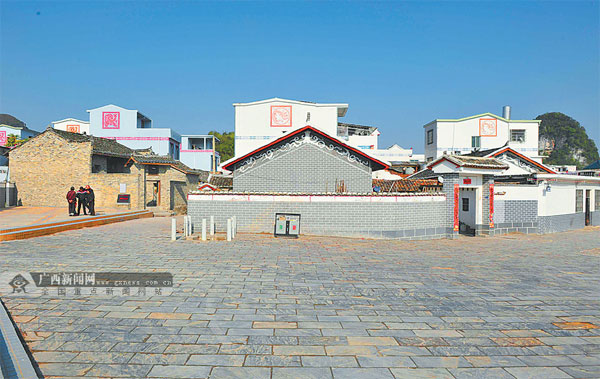Shiwei Ancient Village
By (chinadaily.com.cn)
2019-11-05
Shiwei Ancient Village in Luocheng Mulao autonomous county in the city of Hechi can be traced back to the reign of Emperor Hongwu (1368-1398) in the Ming Dynasty (1368-1644). Inhabitants here share the same surname Yin and are all of Mulao ethnicity.
There exists more than 70 ancient buildings in the village that were constructed during the Qing Dynasty (1644-1911) and the Republic of China (1912-1949). Ancient tablets, old bridges, and the stone masts for scholarly honors in feudal times are witnesses to the splendid history of the village.
The 70-meter-long stone wall, partly constructed with mixed mud and mortar, possesses gun holes and guarding passes. It is the largest and most complete defensive wall found in Luocheng.
In 2012, the village was designated as a pilot village for the "protection and development of characteristic villages" project by the Ethnic and Religious Affairs Committee of Guangxi. The ancient dwellings in the village have been fully restored and renovated since then. A folk museum for the Mulao ethnic group was also established here.
In 2014, Shiwei Village was listed as part of the first batch of the "Villages with Ethnic Characteristics in China" by the National Ethnic Affairs Commission.
 |
|
Shiwei Ancient Village in Luocheng Mulao autonomous county in the city of Hechi has been renovated and restored. [Photo/gxnews.com.cn] |
Location: Luocheng Mulao autonomous county, Hechi, Guangxi Zhuang autonomous region
Ticket Price: Free admission




